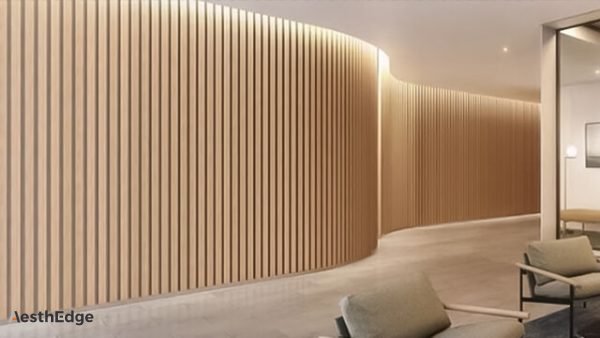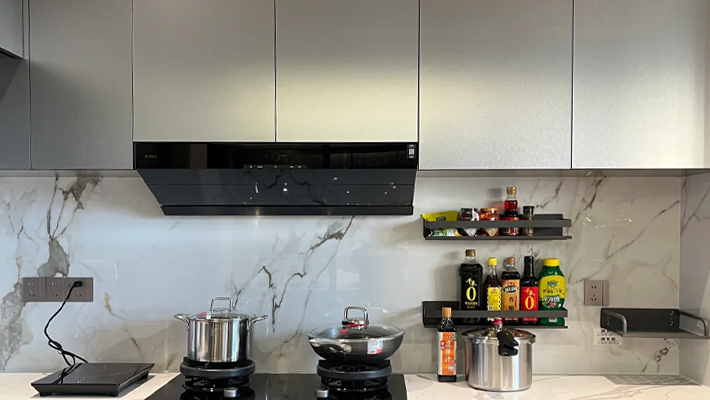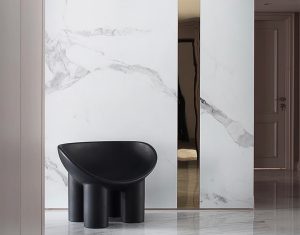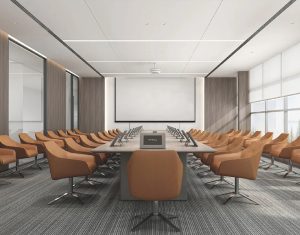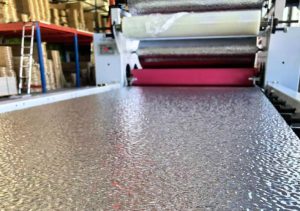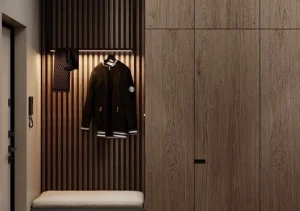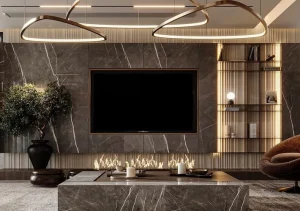Table of Contents
TogglePros of Bamboo Charcoal Wood Veneer
Air Purification:
- Mechanism: Bamboo charcoal has a porous structure that allows it to absorb and trap pollutants, odors, and excess moisture. This makes it effective in improving indoor air quality.
- Applications: Ideal for use in areas prone to odors and humidity, such as kitchens, bathrooms, and closets.
Sustainability:
- Growth Rate: Bamboo is one of the fastest-growing plants in the world, with some species capable of growing up to three feet per day.
- Renewable Resource: Harvesting bamboo does not kill the plant, allowing it to regrow quickly, which makes it a highly renewable resource compared to traditional hardwoods.
Durability:
- Resistance: Bamboo charcoal wood veneer is inherently resistant to moisture, mold, and pests, reducing the need for chemical treatments and enhancing its longevity.
- Strength: Bamboo fibers are strong and resilient, contributing to the overall durability of the veneer.
Aesthetic Appeal:
- Visual Texture: The unique grain and coloration of bamboo charcoal veneer can add a contemporary and sophisticated look to interiors.
- Versatility: Available in various finishes and styles, it can complement a wide range of interior design themes.
Eco-Friendly:
- Carbon Footprint: Bamboo cultivation requires fewer pesticides and fertilizers, and its ability to sequester carbon dioxide makes it an environmentally friendly choice.
- Reduced Deforestation: Using bamboo products helps reduce the demand for traditional hardwoods, aiding in forest conservation efforts.
Regulates Humidity:
- Moisture Balance: Bamboo charcoal can absorb excess moisture when the air is humid and release it when the air is dry, helping to maintain a comfortable indoor environment.
Cons of Bamboo Charcoal Wood Veneer
Cost:
- Production Costs: The additional processing required to create bamboo charcoal veneer can make it more expensive than other types of veneers.
- Market Prices: The price can also be influenced by its relative novelty and the limited number of suppliers.
Availability:
- Supply Chain: Depending on your location, bamboo charcoal wood veneer might not be as readily available as traditional wood veneers, which could result in longer lead times and higher shipping costs.
- Local Suppliers: Fewer local suppliers might carry this product, requiring special orders from specialized distributors.
Installation Complexity:
- Skill Requirement: Proper installation of bamboo charcoal veneer may require skilled labor to ensure it is applied correctly and securely.
- Special Tools: Depending on the veneer, specific tools and adhesives might be necessary, adding to the overall installation cost.
Color Consistency:
- Natural Variations: As a natural product, bamboo charcoal veneer can have variations in color and texture, which might be undesirable for projects requiring uniformity.
- Batch Differences: Differences between production batches can also result in slight variations, making it important to order sufficient material to complete a project.
Maintenance:
- Cleaning: While it is generally low-maintenance, bamboo charcoal veneer might require specific cleaning products to avoid damaging its surface or reducing its air-purifying properties.
- Regular Upkeep: Periodic maintenance might be necessary to retain its aesthetic and functional qualities, such as resealing or reconditioning.
Market Awareness:
- Consumer Education: As a relatively new product in the market, there might be less awareness and understanding of its benefits among consumers and professionals.
- Demand: Lower consumer demand compared to traditional veneers can impact availability and pricing.
For more information, contact us!

